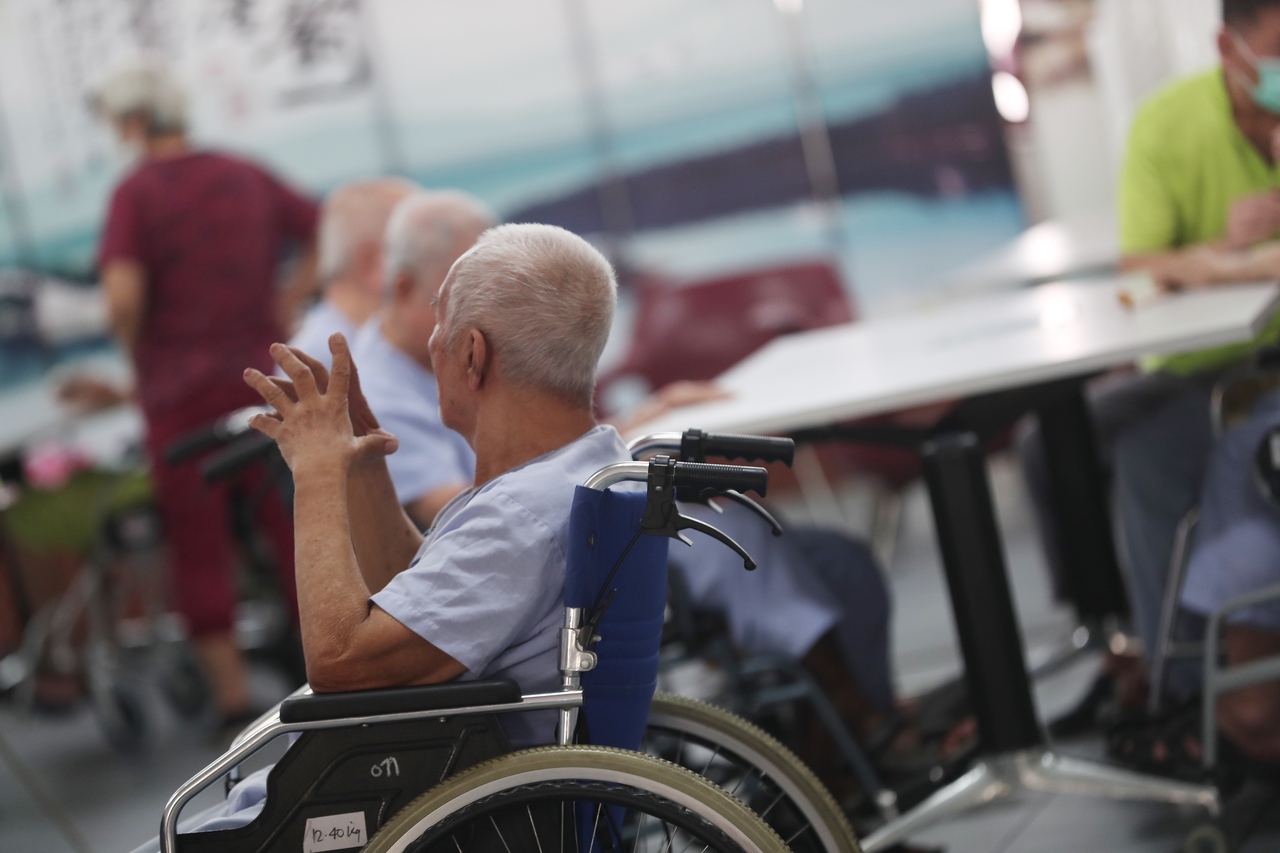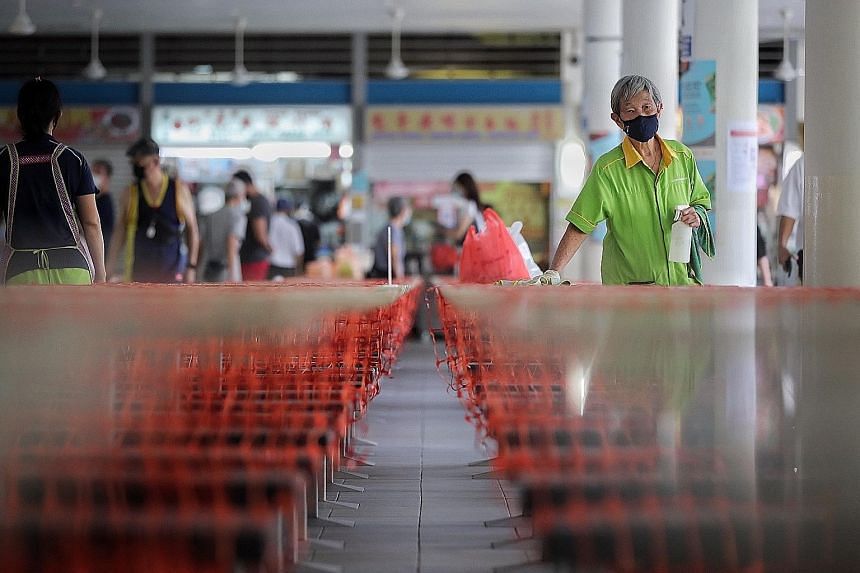Stricter cleaning regime in S'pore for premises with more vulnerable occupants or high footfall from July 30
Sign up now: Get ST's newsletters delivered to your inbox

About 180 eldercare facilities are set to implement the regime by July 30.
ST PHOTO: KELVIN CHNG
Follow topic:
SINGAPORE - Owners of premises with more vulnerable occupants or high footfall like some eldercare facilities, schools and coffee shops will face stricter cleaning requirements from Friday (July 30), as the National Environment Agency (NEA) rolls out a new environmental sanitation regime.
The first six months under the new regime will be an advisory period to allow the over 3,000 premises that fall under it to ease into the changes.
It also involves a staggered roll-out of the regime across different sectors. For instance, about 180 eldercare facilities are set to implement the regime on Friday, while about 1,100 coffee shops are slated to do so by March next year.
"This staggered roll-out provides premises owners and operators more time to prepare for the new routine and thorough periodic cleaning and disinfection workflow, and to send their staff for the required two-day environmental control coordinator (ECC) training," said NEA.
To date, about 350 appointed ECCs have been trained, largely for the eldercare, youth and social service facilities, it added.
These facilities are expected to implement the regime earlier, from Friday.
The regime introduces mandatory baseline standards for specified higher-risk premises, and places greater responsibility on managers of these premises to ensure the standards are met.
The standards include:
- Minimum daily cleaning and disinfection frequencies for toilets, lifts, bin centres and high-touch surfaces;
- Minimum six-monthly thorough periodic cleaning, which includes cleaning areas that are not easily accessible nor covered by routine cleaning (for example, out-of-reach window panels, ceiling and wall fans). Intense cleaning of areas already covered under routine cleaning may also be required during this thorough periodic cleaning. The frequency of the thorough periodic cleaning may be increased depending on the type of premises;
- Pest management plan to ensure that measures are in place to prevent pest issues;
- Cleaning and disinfection methodology/protocol to respond to incident(s) involving bodily discharge (for example, vomitus); and
- Provision of necessary equipment and cleaning agents to carry out effective cleaning and disinfection.
On top of these, sector-specific standards must be implemented as well. A sample programme is available on the NEA website.
To comply with this regime, premises managers have to put in place an environmental sanitation programme and have overall responsibility for the cleanliness of their premises.

ECCs will assist in developing, reviewing and monitoring the implementation of the programme within each premises, as well as developing the environmental sanitation programme in their premises.
The agency also said four training providers have been appointed and approved by SkillsFuture Singapore to ensure sufficient training capacity for ECCs.
After passing ECC training, appointed ECCs have to be registered with NEA.
NEA added that sector-specific standards were finalised and communicated to the respective sectoral leads and premises managers.
"The environmental sanitation regime sets out clear guidance in aspects such as the minimum cleaning frequency and scope, which will help ensure that our premises are properly cleaned and disinfected at all times, " said Ms Carol Chua, director at the Ministry of Social and Family Development's service management and resource division.
The new regime was part of the Environmental Public Health (Amendment) Bill that was passed in Parliament in October last year.
Correction note: In an earlier version of the article, we said the new environmental sanitation regime will kick in for nursing homes, among other premises, with more vulnerable occupants or high footfall. This is inaccurate. The new environmental sanitation regime does not include nursing homes. Instead, eldercare facilities covered include senior care centres, active ageing hubs, hospice day care and sheltered homes. We are sorry for the error.

